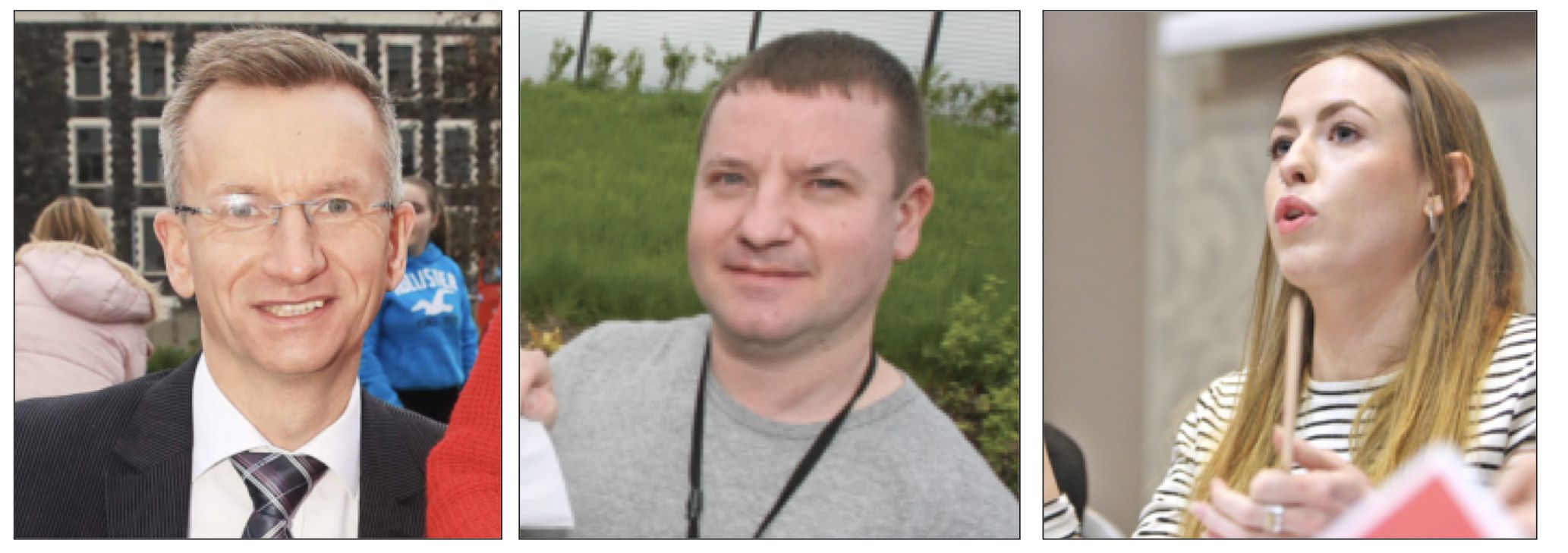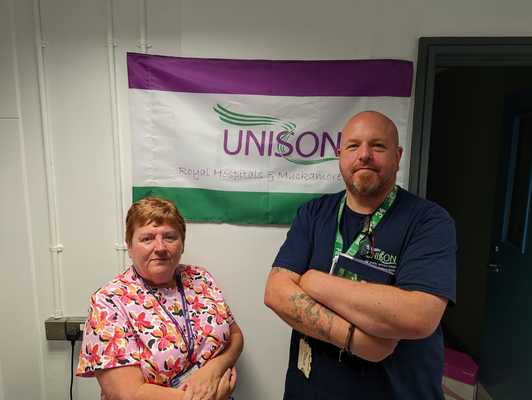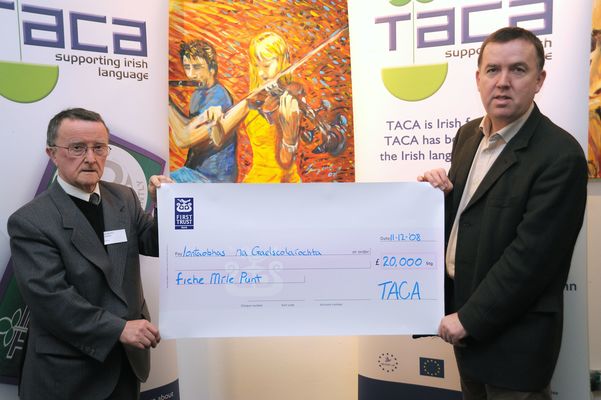Tuesday night’s Council meeting saw a majority of councillors vote for the creation of a new Standards and Business Committee.
The Alliance Party, SDLP, Greens, and People Before Profit (PBP), were united in their opposition to the new committee, which they say will hinder democracy in the council.
However, the committee was created with the backing of the DUP, UUP, and Sinn Féin.
According to a council report, the committee aims to “safeguard the conduct of councillors” and to “ensure the probity of all the Council’s proceedings”.
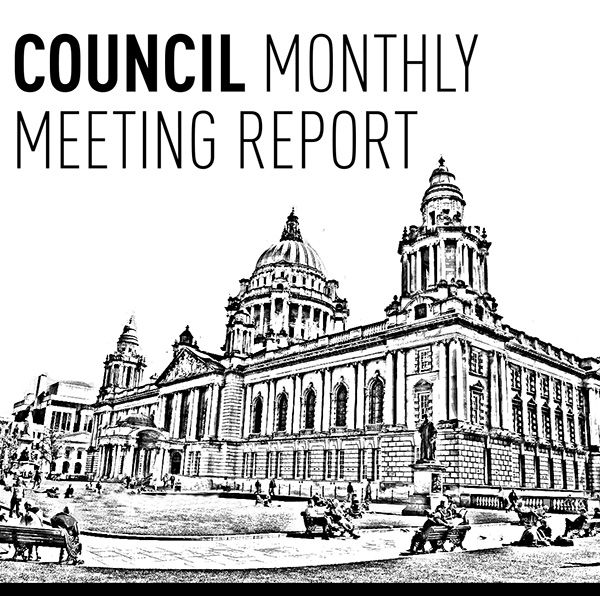
In its terms of reference, it is suggested that the committee will deal with “low level disputes” between members around code of conduct breaches and standing orders.
The proposal comes following a report into the Council’s management of the cremation of Bobby Storey at Roselawn Cemetery in June 2020.
The investigation by Peter Coll QC found that Mr Storey’s former status as a senior Sinn Féin member was not a “determining factor” in allowing his family to stand outside the crematorium at the cemetery, while eight other families were not permitted to do so.
However, on Tuesday night, concerns were raised about a further committee function that will create delegated powers to adopt or reject Notices of Motion.
It comes following a years-long debate over the impact of motions on the length of montly Council meetings.
Alliance Party, SDLP, Greens, and People Before Profit (PBP) councillors insist the proposals would allow the 20-member committee to side-line smaller parties.
During the debate, PBP Councillor Fiona Ferguson accused the DUP and Sinn Féin of trying to “stifle democracy” via an agenda “carve up”.
“We think this is a clear attempt to appease the wishes of big parties who want to quiet the voice of smaller parties,” she said.
Cllr Ferguson added that the delegated powers would give certain parties “carte blanche” to block motions that “threaten their interests”.
Alliance Councillor Nuala McAllister described the potential for restricting motions as “another mechanism to curtail the speaking rights of smaller parties”.
The Castle representative also described the standards function of the new committee as “bizarre”.
“It seems bizarre that councillor could be referred to this committee for some behaviour and be investigated and sanctions taken on votes by other councillors,” she added.
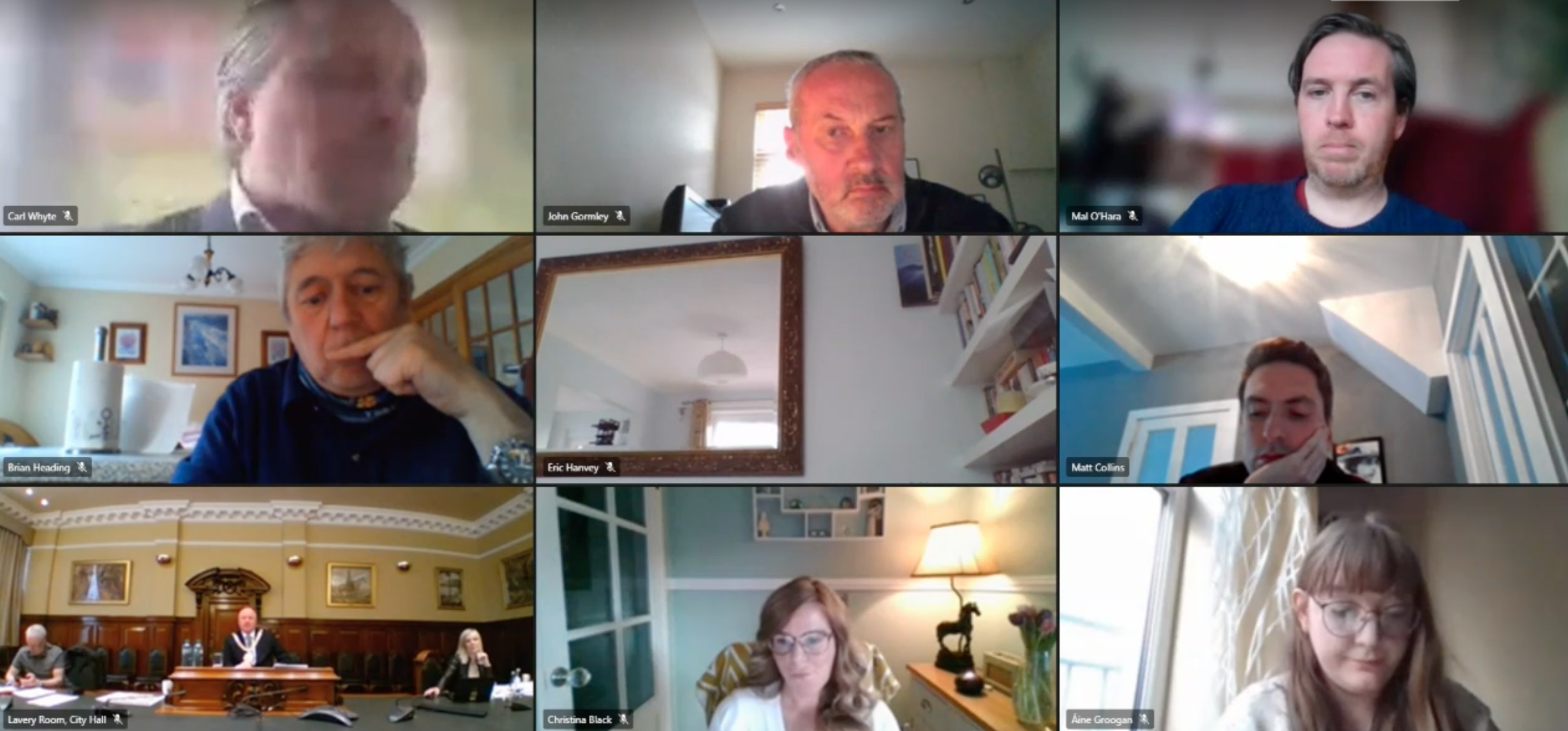
Green Party Councillor Áine Groogan said that while her party was not opposed to the committee “in principal”, she insisted that any such committee must have “the right terms of reference and the right safeguards in place”.
She said that the current proposals did not have “buy-in” from all councillors, adding “it’s not going to work”.
Speaking in favour of the proposal, DUP Councillor Brian Kingston said the Council needed a way of managing its business.
“The current openness and lack of a business committee has been tested to destruction,” he said.
Cllr Kingston said the new committee, which will operate on an initial trial period of six months, will be kept “under review” by his party.
SDLP Councillor Séamus de Faoite accused the DUP and Sinn Féin of “hypocrisy”, stating that they were content to bring motions on what he described their “pet projects”.
“This to my mind is a clear attempt at removing the ability of parties outside the tribal twosome to propose ideas and policy and it undercuts our democratic right as elected members of this council,” he stated.
Four separate amendments to reject or curtail the powers of the new committee fell with the DUP and Sinn Féin voting against.
South Belfast Councillor Donal Lyons then interjected to slam the “weaponization” of the committee, stating that arguments in favour were “puddle deep”.
He said the SDLP would call-in the decision due to concern over the “legal credibility” of the proposal.
“Sinn Féin’s silence on this shows their discomfort,” he added.
Later, unionist councillors made a last ditch attempt to prevent the implementation of a new council policy on dual language street signage policy.
The new policy, which was backed during last month’s meeting of the Strategic Policy & Resources Committee, will allow for a consultation on the erection of bilingual signage in any given street to begin following an expression of interest by resident(s) or councillor, with a percentage of 15 per cent of residents required to carry the change.
PUP Councillor John Kyle described the policy change as a “mistake”, stating that it would be “unhelpful” for bilingual signs to be installed “against the wishes of a majority”.
Alliance Council leader Michael Long said the decision on the installation would rest with the committee, which “would take it into account” if a majority was against.
He stressed that the Irish language “must be part of that shared city”.
Responding to Cllr Kyle, Cllr Ferguson said the policy is about “visibility for the Irish language” and is “not about an attempt to trump others”.
Cllr Kingston agreed with Cllr Kyle’s sentiments, stating that the new policy would “cause division”.
Sinn Féin Council leader Ciarán Beattie said the council had looked “best international practice” in the creating the new policy.
He said there was “nothing to fear” in the new policy, adding that it was “going to be done in a sensible way”.
A proposal by Cllr Kingston to reject the new policy was roundly defeated.
Statue for McCracken
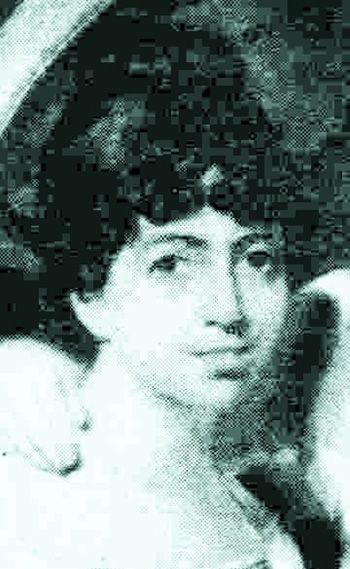
THE Alliance Party has proposed to erect a statue of republican and anti-slavery campaigner Mary Ann McCracken at Belfast City Hall.
The abolitionist and humanitarian campaigned at Belfast docks handing out anti-slavery leaflets to emigrants heading to America.
Better known as the sister of executed United Irishmen leader, Henry Joy McCracken, Mary Ann was also a radical political activist and social reformer who dedicated much of her time to helping the poor through the Belfast Charitable Society.
Tomorrow is full Council & will be mainly about this person for me. But who is she? pic.twitter.com/PJmJhna9qK
— Michael Long (@CllrMichaelLong) May 3, 2021
On Tuesday, night Alliance Party Councillor Michael Long brought forward a motion to Belfast City Council to have a statue installed in her honour at City Hall. Cllr Long said the current symbols at City Hall were were mainly “white, Protestant and male”, with the only woman being Queen Victoria, whose statue is in the grounds. He said his motion was a call for City Hall grounds “which reflect our city”, adding that Mary Ann McCracken was “a great person to help start make that happen”.
Cllr Long’s motion was referred without discussion to committee where it will be voted on in the coming weeks.
Sinn Féin Councillor Ciarán Beattie described Mary Ann McCracken as “one of Belfast’s most famous daughters.”
“She was a leading republican figure in the city around the time of the United Irishmen rebellion and also worked to support those most in need through Clifton House where she dedicated so much to feeding and sheltering the poor,” he said.
“It is only right and fitting that she is recognised at our City Hall.

